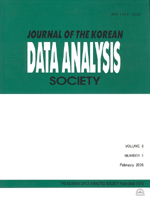사회적 자본과 기업혁신역량의 관계
The Relationship of Social Capital and Firm’s Innovative Capability
- 한국자료분석학회
- Journal of The Korean Data Analysis Society (JKDAS)
- Vol.13 No.4
-
2011.082125 - 2136 (12 pages)
- 6

혁신역량(innovative capability)에서 중요한 전략은 활용형 혁신전략과 탐험형 혁신전략을 각각 어느 정도로 수행할 것인가의 문제로 나타난다(He & Wong, 2004). 특히, 기술혁신역량에 투입할 수 있는 자금과 인력이 제한되어 있는 중소기업의 경우, 기존기술과 기존시장 중심의 활용형 혁신전략과 신기술과 신규시장을 위한 탐험형 혁신전략 중 특정영역으로 선택하여 집중할 것인가 아니면 양자를 적절히 균형적으로 수행할 것인가 하는 것은 기업의 성과와 생존에 있어서 매우 중요하다. 본 연구는 탐험형 혁신과 활용형 혁신의 유형을 바탕으로 혁신형 중소기업을 대상으로 한 사회적 자본의 특성 중 네트워크의 범위 및 강도에 어떠한 영향을 주며 이들의 상호관계가 실제 혁신성과에 어떠한 영향을 주는지를 실증분석하고 시사점을 제공하였다.
Social capital is a sociological concept, which refers to connections within and between social networks. While exploration and exploitation represent two fundamentally different approaches to organizational learning, recent literature has increasingly indicated the need for firms to achieve a balance between the two. This balanced view is embedded in the concept of firm’s innovative capability. However, there is little direct evidence of the positive effect of fit of social capital characteristics and innovative forms on firm performance. This paper seeks to test the hypothesis by examining how exploration and exploitation can jointly influence firm performance in the context of social capital to network scope and network intensity. Based on a sample of 128 Busan regional Inno-Biz manufacturing firms, we find evidence consistent with the hypothesis by showing that first, the interaction between social capital and innovation strategies is positively related to innovation performance and second, the relative importance between exploration and exploitation is related to network characteristics.
1. 서론
2. 이론적 배경과 연구가설
3. 연구 방법
4. 분석 및 결과
5. 결론
참고문헌
(0)
(0)